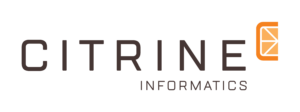Workshops
Registration is now open for the 2025 North America Materials Education Symposium. The workshop information is listed below.
Workshop Information

Title: Teaching Sustainable Product Design with Ansys Tools Level 1
Instructors: Kaitlin Tyler & Hesam Moghaddam
In pursuit of realizing a responsible production (United Nations Sustainable Development Goal No.12) of goods, sustainability considerations are becoming indispensable in an engineer’s decision-making process throughout product development.
Holistic product design must consider the functional, geometric, and material needs as well as environmental impact. This can be challenging to teach to students, especially when various degree programs often focus on specific portions of the design process more than others. To support this, we have developed a Sustainable Product Design (SPD) Methodology, which combines materials selection (building on the Ashby Selection Methodology), functional and geometric analysis via simulation, and a simplified LCA and trade-off analysis.
In this workshop, attendees will implement the SPD methodology utilizing Ansys Granta EduPack™ (a teaching software for materials education) and Ansys Discovery™ (a 3D product simulation software) and explore how to implement this in their existing courses.
Software Access:
Access to Ansys software will be provided in the workshop- no need to bring a personal computer. Previous experience with Ansys Granta EduPack is recommended but not required. No previous experience with Ansys Discovery is required.
Certification:
Free assessment and certification are available after completion of this workshop.
Workshop Learning Objectives:
By the end of this workshop, participants will be able to:
Understand how materials selection, simulation, and product life cycle considerations can be used in the classroom for teaching sustainable product design
Explore the connection between the Ansys Granta EduPack and Ansys Discovery software for teaching
Create and present a short class activity utilizing the Sustainable Product Design Methodology
Proposed Workshop Agenda: (Full day workshop)
9:00-9:15am
Arrival and Check-in
9:15-10:15am
Introduction to the Sustainable Product Design Methodology
Materials Selection of a Longboard
10:15-10:45am
Coffee Break
10:45am-12:00pm
Topology Optimization of a Longboard Deck
12:00-1:00pm
Lunch
1:00-2:00pm
Streamlined Life Cycle Assessment of a Longboard Deck
2:00-3:00pm
Course Activity Development Part 1
3:00-3:20pm
Coffee Break
3:20-4:15pm
Course Activity Development Part 2
4:15-4:45pm
Course Activity Presentation (required for certification)
Reference Materials:
Utilizing Materials Selection and Simulation in Design | Ansys
Case Study: Bike Crank Design Optimization – Towards Sustainable Product Design

Machine learning, artificial intelligence, and data science is becoming an increasingly important component of materials science and engineering, requiring students to be prepared for these methods and tools. However, pedagogy around education on these topics typically requires students to have previous knowledge around programming in languages such as python or MATLAB, limiting coursework to advanced students. In this workshop, attendees will use the no-code, web-based Citrine Platform to learn basic informatics concepts such as data management, machine learning model building, and uncertainty-driven selection of experiments, and then work through practical examples of materials design using the Citrine Platform. All members of the audience will have access to the software during the workshop. The goal of the workshop is to provide attendees with potential resources for inclusion of no-code pedagogies for materials informatics education into undergraduate course curricula.
Proposed Workshop Agenda:
Hour 1: Conversation with audience on workshop goals, importance of materials informatics, and informatics workforce development.
Hour 2: Walkthrough of the Introduction to Materials Informatics course module.
Hour 3: Walkthrough of the Alloy Design for Corrosion course module.
Hour 3.5: Discussion of how materials informatics can be incorporated into undergraduate curriculum (Cal Poly case study).


